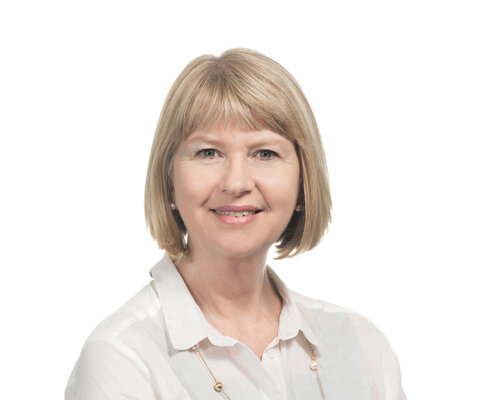Four week nation-wide school closure in South Africa: Regression and Justifiability
A follow-up piece on the previous blog post: “Equitable re-opening of schools in Sub-Saharan Africa: Is it all or nothing?”
By Ann Skelton and Nicole Breen
 On the 23rd of July 2020 President Cyril Ramaphosa announced the closure of public schools in South Africa from the 27th of July to the 24th of August. This comes in addition to the 10 week closure which took place from 18th of March to the 8th of June, and in fact, some children have not been at school since late March 2020. During a school closure, the right to basic education is significantly limited and in fact extinguished for some who cannot access remote learning.
On the 23rd of July 2020 President Cyril Ramaphosa announced the closure of public schools in South Africa from the 27th of July to the 24th of August. This comes in addition to the 10 week closure which took place from 18th of March to the 8th of June, and in fact, some children have not been at school since late March 2020. During a school closure, the right to basic education is significantly limited and in fact extinguished for some who cannot access remote learning. A limitation of rights is permissible in South African law in the event that the limitation is “reasonable and justifiable in an open and democratic society based on human dignity, equality and freedom.” The Constitution of the Republic of South Africa (CRSA) provides a 5 part test that must be applied in making this determination in respect of a law that limits a right or rights. This is found in section 36 of the Bill of Rights. It entails examination of:
“(a) the nature of the right;
(b) the importance of the purpose of the limitation;
(c) the nature and extent of the limitation;
(d) the relation between the limitation and its purpose; and
(e) less restrictive means to achieve the purpose.”
Given the fact that millions of children are affected by the decision to close schools and for the school year to be extended, it is important to make this assessment in an attempt to establish whether this decision passes constitutional muster, as well as to establish whether concrete steps need to be taken to prevent total closure of all schools from happening again.
The right to basic education in the South African Constitution is an immediately enforceable socio-economic right, as confirmed in the case of Governing Body of the Juma Musjid Primary School & Others v Essay N.O. and Others. This is because, unlike sections of the Constitution pertaining to other socio-economic rights, the right to basic education in section 29(1)(a) contains no internal qualifiers such as requiring the state to take “reasonable” measures “within available resources” to achieve “progressive realisation of the right”. In fact, South Africa has already largely fulfilled its obligations regarding availability and access to education, with a relatively high rate of enrolment in public schools. Participation in education institutions was, prior to COVID-19, virtually universal (97,4%) up to 15 years of age - the earliest legal school leaving age - and nearly three-quarters (74,5%) of learners were still in school by 18 years of age. Like all socio-economic rights, there should be no retrogression in respect of the right to education – in other words, back-tracking is not permissible. As the UN Committee on Economic, Social and Cultural Rights has said, retrogressive measures “would require the most careful consideration and would need to be fully justified by reference to the totality of rights” (GC 3 para 9), an approach which the South African courts have upheld. Even in times of economic crisis, according to the Committee on the Rights of the Child (GC 19 para 31) “regressive measures may only be considered after assessing all other options and ensuring that children are the last to be affected, especially children in vulnerable situations “.
So, clearly this is a powerful right, and one for which the government needs to demonstrate very strong justification to limit.
As to the nature of the right, there are severe ramifications when schools are closed. Children do not learn and develop as they should. For example, they do not receive adequate psychosocial support, incidents of child abuse may go undetected and they are deprived of opportunities to play and socialise. A school is far more than a set of walls and a blackboard, it is where children have formative experiences. Schools are, for many, a safe space from a difficult home life and represent a promise for a better future.
The purpose of the limitation in this instance is presumably to prevent or slow down the spread of Covid-19 as the peak infection rate arises. It is purportedly for the protection of children, their families, communities and school staff.
Trade unions played a prominent role in the negotiations surrounding closure of schools. It has been asserted by Professor Jonathan Jansen - Vice Chancellor of the University of Stellenbosch - that the decision to close schools may have some of its roots in the political pressure with which the state was faced. The purpose of the decision could, therefore, have been a diplomatic one, as opposed to one directly rooted in keeping people safe from the virus.
This seems to be supported by the words of Basic Education Minister Angie Motshekga who made the point that while the decision to close schools was welcomed, evidence illustrates that it is better to have children in schools than in their communities.
The extent of the limitation and the relation of the extent to the purpose of the limitation relates to the question of whether the closure needed to be for as long as four weeks. According Dr Sheri Fanaroff writing for the South African government’s COVID-19 online resource and news portal, and many experts the world over, children are not likely to become infected by the virus nor to become significant vectors for infection. It is also worth questioning why the government chose the time period of 4 weeks? Would a shorter period not have had the effect of flattening the curve?
 A further question relating to the breadth of the limitation is whether it was necessary for all schools to shut down? There are parts of the country where infection rates are rising rapidly while in others the spread of the virus is far slower. This is a fluid situation, which requires a risk-adjusted approach. Perhaps it would have been more prudent of the government to adopt an approach tailored to different areas and their needs, as opposed to taking a blanket approach that affects the right to basic education of all learners. This would entail closing schools only in hotspot areas. Had the government taken this decision, fewer children would be affected and there would be more of an opportunity for children to continue their studies.
A further question relating to the breadth of the limitation is whether it was necessary for all schools to shut down? There are parts of the country where infection rates are rising rapidly while in others the spread of the virus is far slower. This is a fluid situation, which requires a risk-adjusted approach. Perhaps it would have been more prudent of the government to adopt an approach tailored to different areas and their needs, as opposed to taking a blanket approach that affects the right to basic education of all learners. This would entail closing schools only in hotspot areas. Had the government taken this decision, fewer children would be affected and there would be more of an opportunity for children to continue their studies.
School closures further entrench inequality between children of the middle and upper class and the poor. The latter do not have the opportunity to learn digitally and being physically present in a classroom is the only way in which they can acquire knowledge. Given that COVID-19 is likely to stay with us for some time, as discussed in Ann Skelton’s blog, it is important to ensure that the limitation of rights is tailored to the narrowest number.
Upon analysis, it appears that the limitation of the right to basic education does not pass Constitutional muster. The government is regressing on a crucially important socio-economic right. By their own admission, the decision was not informed by scientific advice.. Even if the purpose was to slow infection rates and flatten the curve, a total shut down of all public schools for four weeks opens the government to criticism that their measure is impermissibly broad, and less restrictive means to achieve the purpose could have been found.
Prof Ann Skelton (BA LLB LLD) has been a human rights lawyer in South Africa for 25 years, specialising in children’s rights. She was at the forefront of child law reform through the SA Law Reform Commission. Ann is a Professor of Law at the University of Pretoria where she holds the UNESCO Chair in Education Law in Africa. She is an advocate who has been played a leading role in landmark litigation, including education cases. She has published widely both locally and internationally. In 2012 she was awarded the Honorary Worlds Children’s Prize. She is currently a member of the UN Committee on the Rights of the Child, and chaired the expert committee that drafted the Abidjan Principles on state’s obligations regarding public education and the regulation of private of education. Twitter:@askelton_CCL
Nicole Breen is an LLM graduate in Child Law. She has worked in the non-profit and academic sectors as well as for a national human rights institution. Her interests include children's rights, education, mental health, and migration.




